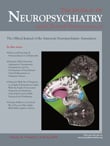SIR: Typical and atypical antipsychotic drugs exhibit inadequate or poor response in 20%–40% of patients suffering from schizophrenia.
1 Considering that the problem of treatment-resistant schizophrenia is an important and difficult one, several approaches have been made by clinicians in order to deal with the clinical challenge. An overview of results suggests that combinations with clozapine and a second atypical antipsychotic were mostly beneficial in the described patients, with reduction of positive and negative symptoms.
2,
3 Although augmentation strategies are poorly documented, they are fairly common in clinical practice.
4 Ziprasidone is a atypical antipsychotic. It has a greater affinity for serotonin 5-HT
2A receptors compared with its affinity for dopamine receptors.
5 Ziprasidone is an antagonist at each. Furthermore, ziprasidone is an agonist at the 5-HT
1A receptor.
5 In placebo-controlled studies, ziprasidone was shown to be effective and safe in improving positive symptoms in patients with schizophrenia. Adverse effects characteristic of ziprasidone commonly include headache, nausea and somnolence; infrequent effects include extrapyramidal side effects, weight gain and QTC prolongation.
5 Here the authors report our first observations with the combination of clozapine and ziprasidone in two patients with treatment-resistant schizophrenia.
Two female patients of our outpatient clinic with paranoid schizophrenia (29 years and 51 years, meeting DSM-IV criteria) became resistant to the application of several atypical and typical antipsychotics. The authors found a suboptimal response to clozapine treatment (600 mg and 750 mg daily dosages, respectively) over the last 10 to 12 months with persistent paranoid dellusions and acoustic hallucinations. Both patients complained about side effects (sedation, hypersalivation, weight gain) which led to compliance problems. electrocardiogram, electroencephalogram, and computed tomography of the brain revealed no abnormal findings, whereas the blood tests showed increased liver enzymes. Forty mg ziprasidone daily was added in both cases and increased to 80 mg within 1 week. Productive positive symptoms decreased within 12 weeks, and clozapine could be reduced. After 24 weeks the daily clozapine dose was reduced to 400 mg and 625 mg without recurrence of the positive symptoms. As a result of the reduced dose of clozapine, the side effects subsided in both cases, with the focus on daytime fatigue, which in turn led to better compliance. By the end of week 24, the authors found a reduction in the Brief Psychiatric Rating Scale score in the patients greater than 20% (40 to 28 points in the 29 year-old, and 36 to 22 points in the 51 year-old woman).
Our observations, although preliminary, suggest that the combination of clozapine and ziprasidone may benefit patients who are partially responsive to clozapine monotherapy and seems able to reduce side effects. The combined application of the two drugs follows a neurobiological rationale with a highly synergistic antipsychotic potency without increasing the risk of adverse effects. The authors believe that the efficacy of ziprasidone augmentation may be attributed to the complementary receptor profiles of the two drugs, rather than a pharmacokinetic phenomenon. Large controlled trials are needed before firm clinical recommendations can be made about clozapine augmentation. The risk/benefit evaluation of combining the two antipsychotics may require a long period of investigation to fully assess side effects and long-term risk.

